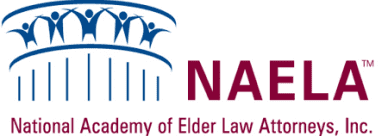When you look around at the life you have built for yourself — whether you are planning to start a family, gearing up for a big new client or spending languid summer days surrounded by your grandchildren — are you confident that you will be leaving your loved ones the legacy you intended without unnecessary burden?
Finding a trustworthy estate planning attorney who understands your needs is not something to be put off for your senior years, nor is it ever too late.
Why Personalized Estate Planning?
The inevitability of the end of a life well lived means having to think about what comes next for all that you leave behind. Having an estate plan is a way of ensuring that your assets are managed according to your wishes and your individual needs — both in your lifetime and after.
Using canned estate planning documents — like a last will template or even smartphone app — to plan your family’s future seems to fit right in with today’s modern approach to simplifying life whenever possible. However, an attentive estate planning attorney, who knows the right questions to ask and takes the time to develop a relationship with you, can ensure that the process will be as smooth as possible.
A mistake in an estate plan cannot be corrected later, and there is no one-size-fits-all approach to your unique circumstances.

Tell Us About Your Concern
Contact Us Today for Your
Case Evaluation
- Your Information Is Safe With Us
What Are Different Types of Estate Plans?
An experienced estate planning lawyer will work alongside you to determine how you should think about structuring your estate planning process, keeping in mind a wide range of estate planning tools including:
Wills
- A will can be the entirety of an estate plan or its cornerstone — allowing you to do so much more than distribute your assets. You can use a will to name whom you want to take care of your children as their guardian. Your will can also indicate the person you have chosen to take care of the probate of your estate. Keep in mind, however, that anyone can access public court documents, which includes the contents of wills that go into probate. A will may not be the best option for those who want to discreetly preserve their legacy.
Trusts
- Trusts are created by trustors or settlors, who — along with their lawyers — decide how their assets should be distributed to trustees, who in turn hold on to the assets for the beneficiaries of the trust. Sometimes, the trustee and the beneficiary are the same. A trust can be used to manage your money while you are alive and after your death, and it can help avoid taxes as well as costly and time-consuming probate. Trusts can protect your assets from creditors and determine the terms for distributing your legacy to your beneficiaries.
Powers of attorney (POA) and healthcare proxies
- A power of attorney, or POA, is a legal document that gives your trusted loved one the ability to make important decisions on your (the principal’s) behalf according to the scope of the document. A durable power of attorney is a special POA that does not become ineffective in the event that you become incapacitated, unlike a regular POA, which ends the moment you become incapacitated. A healthcare proxy is specifically the person you have designated to make healthcare-related decisions on your behalf. These may be the same people, or they may be different.
Beneficiary designations / asset distribution
- Typically included with your will or trust, beneficiary designations and detailed lists of assets are the kinds of fine details that are often overlooked in canned approaches to estate planning. Neglecting these can lead to expensive and time-consuming efforts on the part of your loved ones. In one such case, an executor of her grandfather’s estate found herself needing to track down and hire attorneys in multiple states in order to probate mineral rights royalties for the estate.
Why Create an Estate Plan Now for Your Children?
Between work, school and extracurricular activities, finding time even to have a conversation with each other can feel impossible, let alone plan for the future. Families with young children, however, are never too busy to want to protect their children’s future and ensure that their assets are best positioned to provide their children with security and opportunity.
Hiring an experienced estate planning lawyer means not having to guess at the best course of action for your young family in the event of the loss of one or both parents. Creating a trust that protects your real estate assets, for example, can ensure that your children can remain in their home, while protecting your financial assets can ensure that their school tuition will remain funded.
Because young children are unable to manage their parents’ estate, appointing a trustee ensures that your children, your beneficiaries, receive money and assets as soon as possible.
What Are the Benefits of Estate Planning?
Tax sheltering
- A credit shelter trust (CST), created after the death of the first spouse in a married couple, places assets into a trust that are separate from the estate of the surviving spouse in order to pass tax-free to beneficiaries, such as children or grandchildren, at the time of the death of the surviving spouse.
Estate taxes
- Estate taxes can be costly to the very people you want to benefit from your legacy, but estate planning attorneys can help you make the best decisions about how to ensure that your assets go to whom you intended. Tax exemptions, trusts and life insurance can all be used to reduce the tax burden on your beneficiaries.
Elder care planning
- The average stay in a Massachusetts nursing home costs families $125K a year, but trust planning can help through an efficient spend-down of assets as well as reappropriating where possible in order to qualify for assistance through MassHealth.
Asset management
- You may want some of your assets to keep making money for your beneficiaries. In that case, you will need to consider how your real estate, brokerage accounts, royalties and retirement accounts will be managed, and by whom, and ensure that arrangements are made to have the people you know are best qualified do the job.
Trust management
- Deciding to create a trust is only the first step. The next step is determining which kind of trust suits your individual needs — living, testamentary, revocable and irrevocable are some of the major categories of trusts that can be established depending on what works best for your particular situation.
Digital asset protection
- A properly drafted trust can take care of your digital assets, too. It can ensure that your electronic property, like your computer hard drive, digital photos, data stored in the cloud and online accounts (including social media) are managed in accordance with your wishes. You may want to designate a tech-savvy trustee for these kinds of assets.
Why Choose Kimberly Butler Rainen
- Confidential Case Assessment – On your phone assessment, we will listen to you and help you determine your next steps.
- Focused Legal Practice – Our firm has always concentrated on wills, estate planning, elder law, asset protection, long term care plans and closely related areas.
- No Hidden Fees – Know the costs before starting (in most situations).
- Experienced – In our 8 years in business, we’ve helped hundreds of families protect their legacy and plan for their future.
- Custom Plans and Solutions – You and your family are unique. That’s why we don’t use fill-in-the-blank form documents. Your plan is YOUR Plan. Together we create plans that best fulfill your dreams and goals.
- Highly Responsive – We strive for “freaky fast” returned client calls. No going dark or waiting days to hear back.
- Proactive Approach – We help clients to prevent legal problems and mistakes before they happen.
- Client Education Focused – You’ll get a clear & concise understanding of each step in the process. We offer monthly free seminars to all interested in attending.
- Trusted – National Academy of Elder Law Attorneys and The Academy of Special Needs Planners Member.
- We’re Here For You Afterwards – After creating your plan, we periodically check in with you and keep you informed and can meet to review changes in your assets, situation or wishes.
- Highly Reviewed & Rated – SuperLawyers.com Rising Star, Excellent rating by respected legal website Avvo, 5.0 review rating on Google. See some of our client reviews below.
Professional Associations




Contact Us Today
Real Clients, Real Testimonials
Contact Us
- Your Information Is Safe With Us


